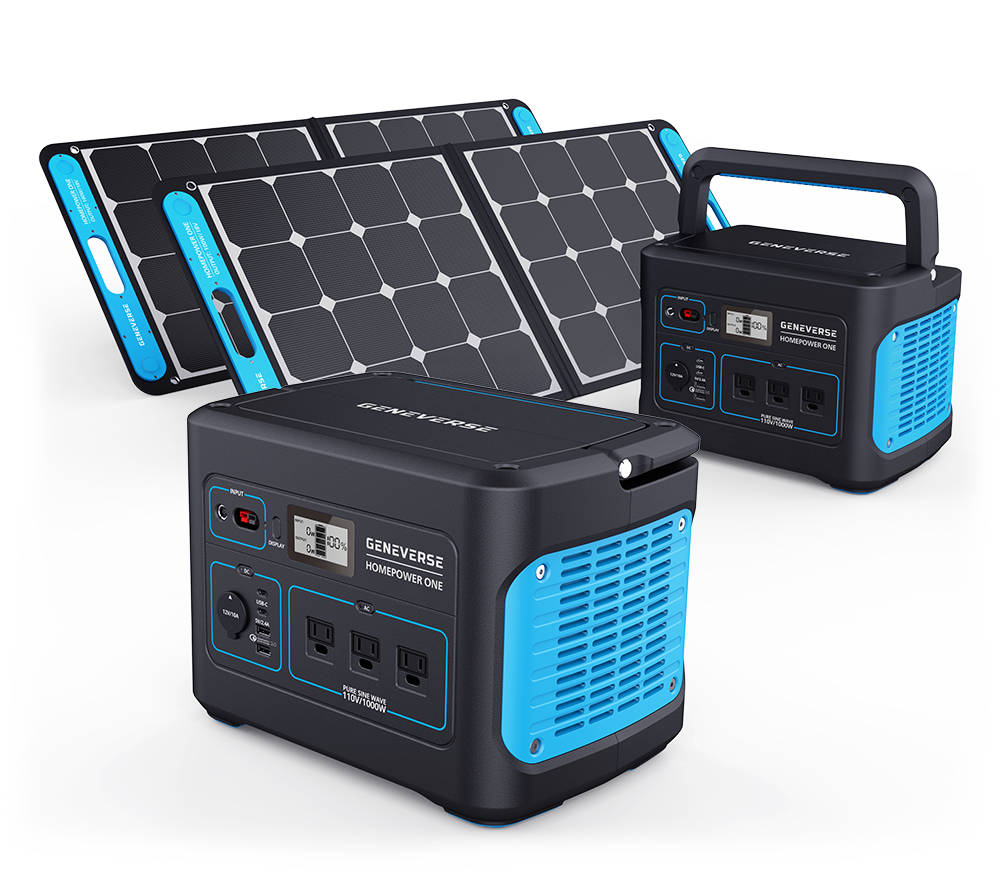Although over recent years solar power and solar battery storage have become far more commonplace, there are still many misconceptions about solar power and battery storage in particular.

Battery storage is a great way to provide yourself and your loved ones with peace of mind during emergencies and unforeseen circumstances, helping households maintain power for electronics, appliances, and even crucial medical devices.
Below, Geneverse sets the record straight when it comes to solar + storage as part of our ongoing effort to provide educational resources to our customers and readership. Read on as we debunk a few of the most common battery storage myths.
1.) Solar + Storage isExpensive
Just like with many emerging technologies, early products and solutions related to solar power might have been a little more hefty during early rollouts. However, now that manufacturers and solar providers have streamlined their processes, products and solutions have come down on price significantly.
Solar investment tax credits have also dropped the cost of going solar. These sorts of policies have been created to assist in rendering renewable energy sources more affordable to the end user.
Local green energy incentives have also helped significantly reduce the price of solar energy storage systems. For instance, in California, under NEM 3.0, households are seeing higher payoffs when utilizing solar battery storage, which gives users the ability to use stored solar energy during emergencies and during times of higher demand.
2.) Solar Energy Storage Only Works in Ideal Climates

Although it’s true that ideal weather conditions are best suited for solar and battery storage, most new technologies are designed to remain effective during fluctuating weather. Battery storage systems are best placed in a garage, but they can also remain effective in outdoor installation scenarios, so long as the battery storage system is placed in a shaded area. Battery storage systems should be placed in areas where the temperature ranges from 15-110° F. Battery storage systems should also be placed in an area where they have protection from severe weather conditions.
In general, solar storage systems remain flexible and can perform effectively in a wide range of climates.
3.) Battery Storage Systems are Loud and Obnoxious
Many people looking to convert to solar have reservations about the noise an energy storage system will create while operating. However, while the Geneverse PowerPillar ESS system charges itself during the day, the noise created is generally considered light. Your energy storage system might sound similar to the sound of a refrigerator if not lighter.
Battery storage systems typically feature a cooling system that might turn on while the battery is operating or if your area is experiencing elevated temperatures, particularly during the summer. Rest assured that the noise created by top notch solar + battery storage systems is hardly invasive. After a while you will likely not even be aware of it.
4.) Net Metering Makes Battery Storage Unnecessary
The point of net metering is to allow those who adopt it to basically sell their excess electricity back to the power grid. Some people see this as a way to use the grid as a virtual battery.
Sure, net metering is a valuable incentive for those converting to solar, it does not result in true energy independence. Battery storage is far more resilient and reliable. Solar battery storage provides homeowners and businesses with true control over energy usage, allowing for true power ownership, especially during peak usage times and in the event of a power outage.
5.) Solar Batteries are Not Environmentally-Friendly
One common misconception is that solar batteries are not good for the environment. This misconception may have arisen because of materials used and manufacturing methods. Many modern solar batteries in this day and age are made from sustainable and recyclable materials. Many manufacturers make it a point to use environmentally friendly materials and processes to address this issue.
The fact remains that solar panels and battery storage help reduce fossil fuel reliance, decrease unwanted greenhouse gas emissions, and result in a net positive for the environment and the communities in which they operate.

Contact Geneverse today to learn more about our PowerPillar ESS – the most cost-efficient energy storage system available on the market. We are committed to powering your home for good!




Leave a comment (all fields required)